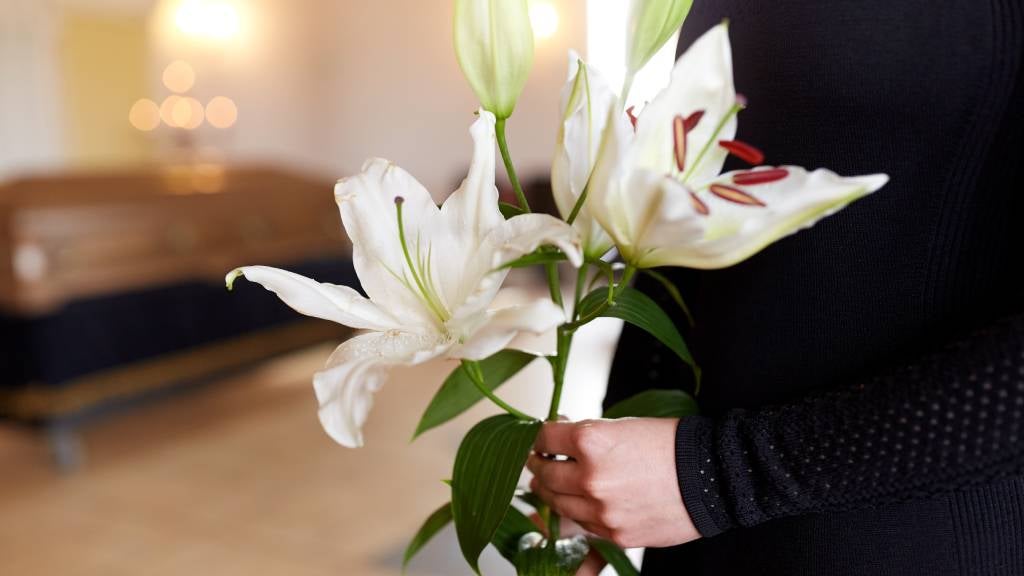Finalising your finances: How to manage the cost of a funeral

Planning a funeral involves so many different emotional and financial considerations. In terms of the actual cost of having a funeral, it can be very helpful to put together a budget and to consider taking out funeral insurance to minimise the financial stress on your loved ones.
Read on to learn more about the typical funeral costs, as well as strategies for managing those expenses so you can have a meaningful farewell without breaking the bank.
Understanding funeral costs
Funeral costs in Australia can start at around $5,000 for a basic cremation to over $15,000 for a full-service burial – with the average sitting just under $9,000. That’s a big amount of money for most people, and it may not be possible to cover everything without financial support.
The good news is that knowing what to expect can help you plan ahead and avoid unexpected financial strain when the time eventually comes.
Checklist of funeral expenses
While every funeral is different and will be built on the wishes of the deceased, there are a number of normal costs involved when planning a funeral. Here are some that you should consider factoring into your planning and budget:
Casket and coffin costs
Caskets and coffins are one of the most expensive items for a funeral, with the average cost of a casket or coffin in Australia being $2,420. However, some caskets and coffins can range from $600 for a very simple coffin to $10,000 for more premium materials and designs. Going for simpler designs or sustainable materials can potentially reduce these costs without compromising on quality.
Burial plot vs. cremation fees
Funerals can cost from $4,000 for a basic cremation to around $15,000 for a more elaborate burial. As well as financial capacity, it’s important to factor in your family member’s cultural beliefs and personal preferences when making this decision.
While two out of three people in NSW alone are cremated every year, burial is also of importance in many cultures and religions. Burial can refer to not just directly in the ground but also above ground, for example, in a mausoleum or vault.
When buying a burial plot, keep in mind that the cost doesn’t usually include a headstone or earth moving and can be additional costs to consider.
A natural burial can also be an option. Not only can it prove cost-effective, but it can also minimise environmental impact as the body is not embalmed and placed in a shroud or other biodegradable material. This means less chemicals leech into the soil from a coffin, clothes and embalming fluids.
At-home burials may also be an option, but you’ll have to check with your local council whether it’s possible to be buried on a private property. There may be restrictions on how small the property can be. For example, in NSW, it has to be bigger than five hectares. There are additional requirements that your council will outline, such as the body having to be buried in a sealed and secure coffin.
Reusing a burial space can also be an option at certain cemeteries, which is known as renewable interment. The burial rules around Australia vary by state or territory, so be sure to look into what’s available in your local government area. For instance, renewable tenure has been available in SA for over 60 years now, and in TAS since 2002, while NSW has introduced it as an option more recently. Renewable tenure has been mandatory in WA since 1986, whereas it’s not available at all in NT, QLD, ACT or VIC.
Floral arrangements and venue decoration
The cost of flowers and venue decorations can vary widely, with some people choosing to DIY everything for a very small budget, while others may spend thousands on fresh flowers and beautiful decorations. To save money, try using seasonal flowers or repurposing floral arrangements after the service. You might also want to think about unique funeral favour ideas to leave a lasting impression.
Funeral director and officiant services
Hiring a funeral director is another cost consideration, and it’s recommended that you get a few quotes from different professionals to see what fits your budget. Double check that your arrangement includes the cost of casket transportation and documentation.
Transport and logistics on the day
Transportation costs for the hearse and family vehicles should also be factored in. Some people choose to save money by driving their own vehicles, but hiring a hearse isn’t uncommon even today. If you will be travelling to multiple locations (i.e. funeral service and then cemetery), your transport costs may increase.
Catering and reception
Post-funeral catering can add to your budget, depending on the number of guests, location and the menu. Many funeral homes will provide this service as part of their packages or as an add-on. You might alternatively choose to hold a wake at a loved one’s home and cater it yourself.
How to manage funeral expenses
Planning ahead can make paying for these funeral expenses more manageable. Perhaps one of the best strategies to adopt is to set your sights on pre-planning and budgeting. Creating a funeral plan means you can outline your preferences and set a firm budget. Pre-planning can also help you or your family avoid any last-minute decision-making that might cause overspending.
Cost-saving alternatives
There are many ways to manage the cost of a funeral, because giving your loved ones a heartfelt and worthy goodbye doesn’t have to cost a fortune.
- Direct cremation: Consider going for a no-frills cremation to save on service costs.
- Alternative places to buy a burial plot: Look at online marketplaces to compare prices of burial plots and compare it to what’s available directly from a cemetery.
- DIY decorations: Make your own floral arrangements, decorations or funeral favours.
- Community support: Think about hosting a smaller, informal gathering in place of a traditional funeral.
- Funeral insurance: Having cover in place can provide financial support to your loved ones by paying for the majority, if not all, the costs associated with your final farewell.
Learn more: Tips for a quick funeral insurance payout
Plan ahead to stay in control
While no one wants to think about the inevitability of death, it makes sense to start planning ahead as life can be full of wonder but it can also be unpredictable.
Death literacy is important and can help you feel more in control. Death cleaning can also be a cathartic experience, as can putting together a budget for your funeral. Plus, it can help you appreciate all the wonderful things you have achieved in your life and the many more things you have to look forward to, making you cherish each precious moment with your family and friends.
You can make it easier for your loved ones to celebrate your life when the time comes by planning ahead. Consider whether Guardian Funeral Insurance can help support your vision.
3 Jan 2025
